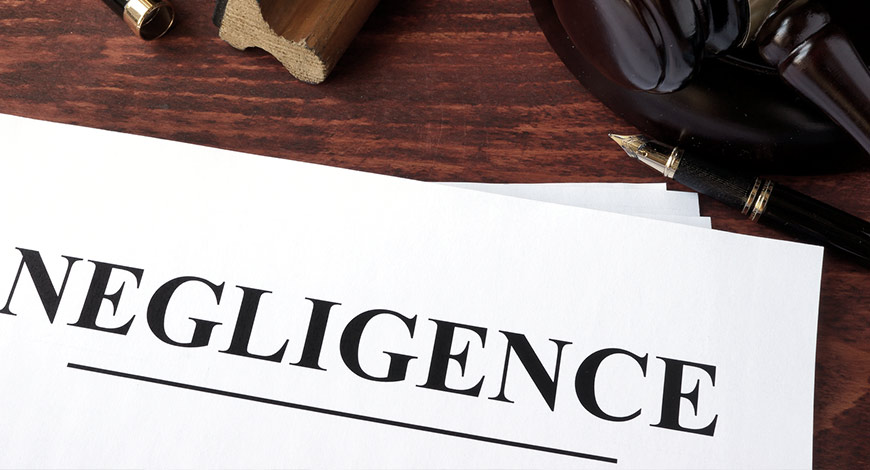
Negligent Acts
A negligent act occurs when someone fails to behave with a level of care that someone of ordinary prudence would exercise under the same circumstances ( https://www.law.cornell.edu/wex/negligence). While this can include a person’s actions, a negligent act can also occur when a person fails to act or acts in a careless manner. Most often a negligent act is an element of a personal injury lawsuit or a medical malpractice case.
The basic elements of a negligent act include:
- Duty, that is the person owed some sort of duty to a plaintiff.
Usually the law needs to recognize some type of relationship between the person and plaintiff. A store owner for example may owe a duty to his or her customers to keep the aisles clean and free of obstructions. - Breach of duty.
This refers to when that duty is breached; for example, the store owner fails to keep the aisles clean and unobstructed. - Cause in fact.
This is the element where a plaintiff shows that because of a breach of duty, the plaintiff suffered an injury; slipped on a wet floor or tripped over a box partially blocking an aisle. - Proximate Cause.
This show the extent to which the person should have seen that the breach of duty could occur; the scope of their responsibility. The store owner could show that the floors were cleaned properly, or that another customer had just placed that box in the aisle and the store didn’t have time to remove it.
Negligent acts are normally part of a personal injury lawsuit. This is a complicated subject that takes and experienced attorney to understand. If your injury wasn’t your fault, you need to seek justice.
Contact the lawyers at Pappas & Russell for a free consultation today.
How Can We Help !
- We also accept cases involving boating injuries and airplane accidents.
- To schedule a free consultation with one of our auto accident attorneys, please contact us today.
- No matter what type of vehicle you were in when your accident occurred.
- To schedule a free consultation with one of our auto accident attorneys, please contact us today.
- We use this information to build solid, evidence-based cases that greatly improve the likelihood.
